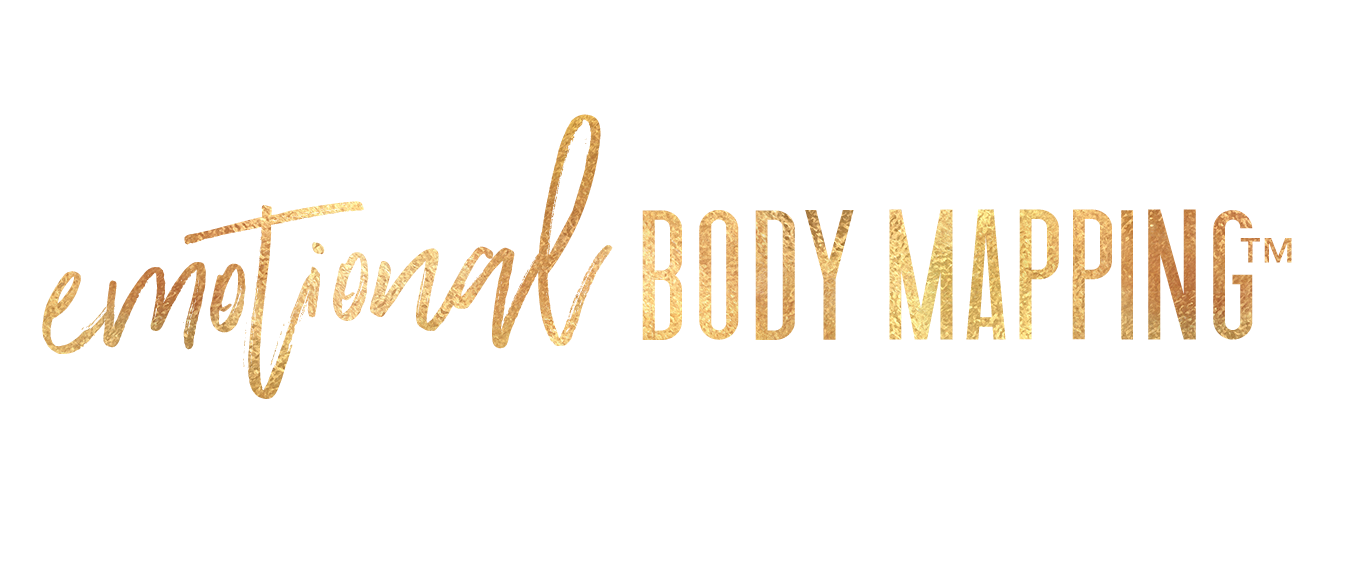The Gut-Brain Connection: How Emotions Affect Digestive Health
Have you ever wondered if there's more to the story regarding your gut health? You've tried the usual remedies, and seen countless doctors, but still, you find yourself battling with digestive issues. You're definitely not alone in believing there's got to be a more holistic approach to healing your gut and achieving better overall health.
Let's face it, we've all been there - exhausted from the seemingly never-ending cycle of discomfort, bloating, and irregularity. It can be frustrating, and it's natural to feel like you've hit a dead end. You might catch yourself thinking, "There has to be a better way to deal with these issues, right? Am I missing something here?" Well, the good news is, your intuition is spot on, and there's hope for finding a more comprehensive solution to your gut troubles.
In this Blog Post, we'll dive deep into the fascinating world of the gut-brain connection, a relatively unexplored area where your emotions and thoughts intertwine with your gut health. We'll uncover how this connection impacts your digestive well-being, and more importantly, we'll explore a range of holistic approaches that could be the key to unlocking better gut health.
Our journey together will take us through the science behind this mind-gut relationship, the common problems many people face, and practical solutions that can pave the way for improved digestion and overall well-being. So buckle up, trust that gut feeling of yours, and let's embark on a journey of discovery and healing together. Are you ready? Let's begin!
Understanding the Gut-Brain Connection
Have you ever wondered why you feel butterflies in your stomach when you're nervous? Or why do you lose your appetite when you're feeling stressed? This is the gut-brain connection at work, and it's a fascinating area of science that's shedding light on how our emotions can affect our digestive health. Let's dive in and explore the mechanics behind this connection and how it influences our daily lives.
The gut-brain connection refers to the ongoing conversation between the central nervous system (our brain and spinal cord) and the enteric nervous system (the complex network that controls our digestive system). You might be surprised to learn that the enteric nervous system contains over 100 million nerve cells, more than the spinal cord itself! This intricate system communicates with the brain through the vagus nerve, and the flow of information is bidirectional. That means the brain can affect the gut, and the gut can affect the brain. It's a two-way street!
But how do these two systems communicate? They chat using neurotransmitters, hormones, and the immune system. For instance, when we're stressed, our brain releases cortisol, a stress hormone that can impact gut motility and increase inflammation in the digestive system. On the flip side, the gut microbiome (the collection of microorganisms that live in our digestive tract) can influence our mood and behavior by producing neurotransmitters like serotonin. Isn't it fascinating that our gut can have such a significant impact on our emotions?
Now that we have a basic understanding of the gut-brain connection, let's explore some common problems people face and their solutions to improve digestive health.
Shame game Are you ready to stop living in overwhelm, people-pleasing, and saying yes to everything?
Want to finish those projects you started and have better consistency?
Do you know inherently your body and mind are connected but are not sure exactly how to understand and achieve results connecting with it?
Do you feel like it's your fault you did not get everything done and then slip into the magical SHAME SPIRAL?!
Get the No Brainer ENDING THE SHAME GAME: Stop Shame spiraling for good!
You will…
Realize the current emotions and bodily sensations that are holding you back.
Recognize the tools used to stop the shame spiraling and,
Regulate your emotions.
For only $11 you will receive:
6 VIDEOS to break down the most common areas of the body that can bring about helplessness, powerlessness, and pain in the body causing shame, freezing, and stopping us in our tracks.
6 WORKSHEETS that include meditations, mantras, and physical/emotional exercises to help begin to regulate and recognize your patterns and behaviors and help shift them into self-serving and proactive behaviors.
THE DIGITAL BOOK, The Body Speaks: Conversations on Emotional Body Mapping. In this book, you will learn even deeper about the practices, delve into the baseline principles of emotional body mapping and how to self-regulate and get out of that shame spiral!
Stress and Anxiety
Who hasn't felt stress or anxiety at some point in their lives? Unfortunately, these emotions can wreak havoc on our digestive health. When stress hormones like cortisol are released, inflammation can increase, and we become more susceptible to conditions like irritable bowel syndrome (IBS). Additionally, stress can interfere with gut motility, leading to constipation or diarrhea. So, what can we do to alleviate this issue?
Mind-Body Practices
Mind-body practices like meditation, yoga, and deep breathing can work wonders for reducing stress and improving digestive health. Research shows that these practices can decrease inflammation and enhance gut motility in people with digestive disorders like IBS. So, next time you feel overwhelmed, why not take a moment to breathe deeply or practice a few minutes of meditation?
Unhealthy Diet
Our diet plays a crucial role in maintaining the balance of our gut microbiome. Processed foods, sugar, and unhealthy fats can feed harmful bacteria in our gut, while fiber-rich foods like fruits, vegetables, and whole grains can nourish the good guys. What can we do to ensure our diet is working for us, not against us?
Eating a Balanced Diet
Incorporating a variety of fruits, vegetables, whole grains, and lean protein into our daily meals can significantly improve gut health. Moreover, adding fermented foods like yogurt, kefir, and sauerkraut to our diet can help increase the diversity of beneficial bacteria in our gut. So, why not try swapping out that bag of chips for a colorful salad or enjoying a refreshing yogurt parfait instead?
Antibiotic Use
While antibiotics can be lifesavers in the battle against infections, they can also disrupt our gut microbiome by killing both harmful and beneficial bacteria. This disruption can lead to digestive problems like diarrhea, bloating, and constipation. How can we support our gut microbiome after a course of antibiotics?
Probiotics and Prebiotics
Probiotics are live, beneficial bacteria that can help restore our gut microbiome after antibiotic use. Prebiotics are fibers that feed these helpful bacteria in our gut. Incorporating probiotic-rich foods like yogurt and taking probiotic supplements, as well as eating prebiotic-rich foods like bananas, oats, and asparagus, can support a healthy gut microbiome. So, after finishing that antibiotic course, don't forget to give your gut some love with these beneficial additions to your diet.
Chronic Inflammation
Chronic inflammation in the gut can lead to conditions like inflammatory bowel disease (IBD), which includes Crohn's disease and ulcerative colitis. Persistent inflammation can also increase the risk of colon cancer. How can we reduce inflammation and support a healthier gut?
Anti-Inflammatory Foods
Incorporating anti-inflammatory foods into our diet can help combat inflammation in the gut. Foods rich in omega-3 fatty acids, like fatty fish, nuts, and seeds, along with leafy greens, can make a difference. Remember to add anti-inflammatory herbs and spices like turmeric, ginger, and garlic to your meals for an extra health boost. Who knew that something as simple as spicing up your dinner could be so beneficial for your gut?
Understanding the gut-brain connection is essential in recognizing how our emotions and stress levels can directly impact our gut health, leading to digestive issues such as IBS, bloating, and inflammation. By being mindful of our emotional imbalances and reducing stress levels through holistic approaches like meditation, yoga, and mindfulness practices, we can significantly improve our gut health and prevent further health complications.
Making dietary changes, such as consuming gut-friendly foods and avoiding trigger foods, plays a crucial role in supporting our digestive health. As we focus on the gut-brain connection, we can take proactive steps toward better digestive health and overall well-being.
If you're struggling with digestive issues or other health concerns, remember that you don't have to face these challenges alone. Professional support can provide guidance and assistance in achieving optimal health and well-being. By taking a holistic approach to our health, considering the interconnectedness of our minds, bodies, and spirits, we can navigate our way towards a healthier, happier life.
Embracing the Holistic Path to Gut Health
As we've explored the ins and outs of the gut-brain connection, it's clear that you're not alone in seeking a more comprehensive approach to healing your gut. It's natural to feel overwhelmed by the wealth of information out there and to wonder how to make sense of it all. "Where do I even begin?" you might ask. But rest assured, you're already taking the first steps toward better gut health by simply acknowledging the power of the mind-gut relationship.
Embrace the journey ahead and remember that each small change you make can lead to significant improvements in your gut health and overall well-being. You've got this! By implementing the holistic strategies we've discussed, like stress reduction, a balanced diet, and nurturing the mind-gut connection, you're well on your way to finding the relief and wellness you deserve.
So go forth, armed with the knowledge and tools you've gained from this article. Trust in the power of the gut-brain connection and take control of your health. As you face the challenges ahead, remember that you're not alone. Countless others, just like you, are seeking a more holistic approach to healing their gut and achieving better overall health. Let this shared journey be a source of strength and motivation.
Together, we can create a world where digestive health is understood and nurtured through the power of the gut-brain connection. Let's break free from the limitations of conventional medicine and embrace the boundless possibilities that holistic healing has to offer. Stand tall, take a deep breath, and let the journey toward better gut health and a brighter future begin!
Thank you for reading this post. I hope the information and insights I've shared have been helpful to you. If you're struggling with anxiety, depression, overwhelm, or chronic pain, emotional body mapping facilitation can help you find relief and healing.
I offer 1:1 coaching sessions for emotional body mapping, and I'm here to support you on your journey toward better emotional and physical health. If you're ready to take the first step towards healing and want to work with me, I encourage you to reach out and schedule a free breakthrough session. However, I understand that 1:1 coaching may not be feasible or desirable for everyone at this time. That's why I offer a range of other resources, including books, courses, and self-care starter kits, designed to help you manage your symptoms and find relief from anxiety, depression, overwhelm, or chronic pain.
I believe in accessibility and offer a self-care starter course starting at just $11, so you can get the help you need without breaking the bank. Together, we can work towards healing your emotional and physical pain and help you create a healthier, happier, and more fulfilling life.
So, if you're ready to take the next step toward emotional healing, I invite you to explore my website and check out my range of resources. Let's work together toward a brighter future.












